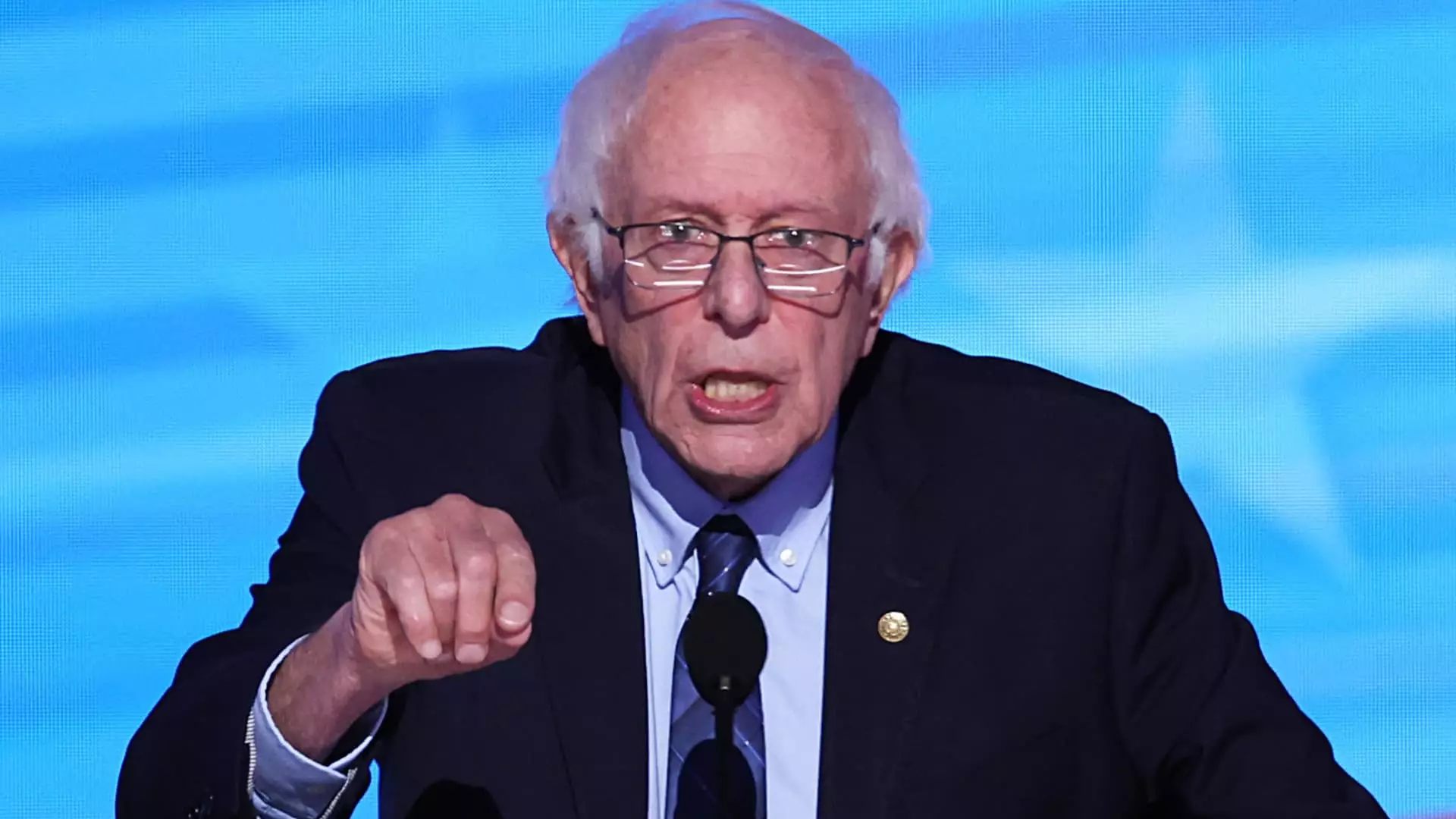Senator Bernie Sanders, known for his progressive economic policies, recently expressed his views on Vice President Kamala Harris’ proposed 28% tax rate on long-term capital gains. Sanders criticized Harris for not going far enough in taxing the wealthy, stating that he would prefer a higher tax rate. This marks a noticeable difference in opinion between the two prominent figures within the Democratic party.
Harris unveiled her plan for a 28% tax on long-term capital gains as a means of generating revenue and addressing economic inequality. This proposal deviates from Biden’s earlier suggestion of a 39.6% capital gains tax rate, which Sanders also deemed insufficient during his 2016 presidential campaign calling for a rate of 54.2%. Sanders’ call for a more aggressive approach to taxing the wealthy underscores his commitment to progressive economic reforms.
In addition to the disagreement on tax policy, Sanders has openly opposed Harris’ shift away from supporting Medicare for All, a cornerstone of his own policy platform. While Sanders has expressed lukewarm support for Harris overall, he remains critical of her abandonment of certain progressive stances in favor of appealing to moderate voters. This divergence highlights the tension within the Democratic party between more centrist and progressive factions.
As Harris seeks to broaden her support base and attract moderate voters, she has distanced herself from some of her more progressive positions. This strategy includes welcoming endorsements from prominent Republicans like Dick Cheney and Liz Cheney, signaling a willingness to collaborate across party lines. Harris’ efforts to position herself as a candidate with broad appeal may be a strategic move to counter criticisms from the right, including accusations of being a “radical left lunatic.”
Impact of Sanders’ Criticism
Sanders’ recent comments on Harris’ economic platform may have repercussions for the Democratic nominee’s campaign. While Sanders has endorsed Harris and supported some of her policy goals, his criticism of her tax proposals and healthcare stance could influence undecided voters. By highlighting the differences between himself and Harris, Sanders is drawing attention to the diversity of perspectives within the Democratic party and the ongoing debate over the direction of its economic policies.
Senator Bernie Sanders’ critical analysis of Vice President Kamala Harris’ economic platform sheds light on the internal dynamics of the Democratic party. While both figures share a commitment to progressive values, their differing approaches to key policy issues reveal the ongoing ideological struggle within the party. As Harris navigates the challenges of building a broad coalition of support, Sanders’ perspective serves as a reminder of the complex dynamics at play in the lead-up to the election.

Leave a Reply